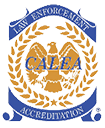PUBLIC ADVISORY – HOLIDAY R.I.D.E. CAMPAIGN
In an effort to keep our roads safe from impaired drivers, the Brantford Police Service is launching the 2020 Holiday R.I.D.E campaign. The campaign goal is to take alcohol and drug-impaired drivers off the roads.
The Brantford Police Service invites the media to help raise awareness surrounding alcohol and drug impaired driving and the consequences.
The BPS Holiday R.I.D.E program will be running during December 2020.
During the month of December 2019, the BPS Holiday R.I.D.E program checked 2210 vehicles and issued 4 charges.
Impaired driving means operating a vehicle (including cars, trucks, boats, snowmobiles and off-road vehicles) while your ability to do so has been compromised to any degree by consuming alcohol, drugs or a combination of the two. Impaired driving is a very serious offence that endangers the lives and safety of everyone on our roads.
Alcohol — even one drink — can reduce your ability to react to things that happen suddenly. The effects of alcohol also include blurred or double vision, impaired attention and slowed reflexes. Impaired driving is one of the leading causes of death on Ontario’s roads.
Brantford Police Service would also like to remind drivers that both prescription and non-prescription drugs are an impairment while driving.
Penalties for Impaired Driving
If police determine that you are driving while impaired by alcohol or any drug, including cannabis, illegal drugs, prescription and over-the-counter medications, you will face severe penalties as well as potential criminal charges if convicted in court.
The penalties vary depending on the driver’s age, licence type, the amount of alcohol or drugs in your system, and the number of times you have been convicted.
Impaired drivers will face the following penalties (depending on circumstances):
- Licence Suspension (3 days to lifetime)
- Vehicle Impoundment (7 days)
- Financial Penalties Payable ($250 to $550)
- Licence Reinstatement Fee ($281)
- An ignition interlock device may be required (6 months to 10 years)
- Attendance of mandatory education or treatment program(s)
- A mandatory medical evaluation to determine whether you meet the requirements for driving in Ontario
If convicted criminally of impaired driving in court, driver’s can also face additional fines and jail time.
Throughout Canada, the maximum legal blood alcohol concentration (BAC) for fully licensed drivers is to be under 80 milligrams of alcohol in 100 millilitres of blood, or 0.08. Driving with a BAC of 0.08 or over is a criminal offence and the penalties are severe.
In Ontario, you will also face serious consequences if your BAC is between 0.05 and 0.08. This is commonly referred to as the "warn range.”
Drivers age 21 or under and novice drivers of any age (with G1, G2, M1, or M2 licenses) must not have any presence of alcohol in their blood when behind the wheel. This is commonly referred to as the "zero BAC” or "zero tolerance” rule.
Young and novice drivers are also prohibited from having any presence of cannabis in their system as well as other drugs that can be detected using approved drug screening equipment. Ontario has a zero tolerance approach to both alcohol and drugs for all young and novice drivers.
Don’t Do It - Avoid Driving Impaired
There are simple steps you can take to stay safe and avoid driving while you are impaired by drugs or alcohol:
- Have a plan to get home safely. Have a designated driver, use public transit, call a friend or family member for a ride, call a taxi or ride share, or stay overnight.
- Ask your doctor or pharmacist about side effects related to driving when using prescription medication.
- Read the information on the package of any prescription drugs or over-the-counter medicine, including allergy and cold remedies.
- Ask your doctor or pharmacist about how a prescription drug could affect you. Remember that combining drugs and alcohol together can impair your ability to drive more than using either one alone.
Have a plan to get home safely. Have a designated driver, use public transit, call a friend or family member for a ride, call a taxi or ride share, or stay overnight.
There is never an excuse for impaired driving.
"Public Safety in Partnership with our Community”


